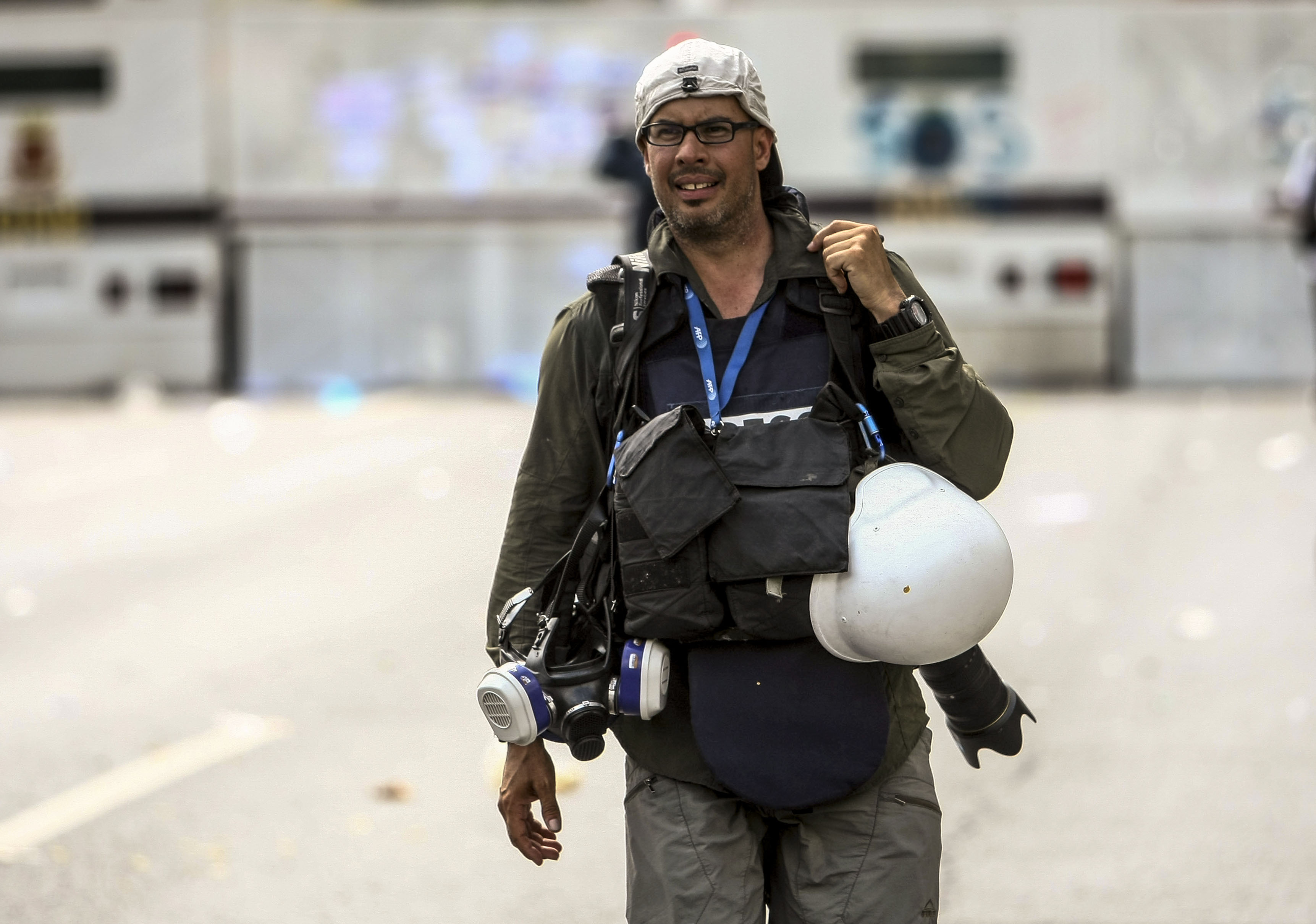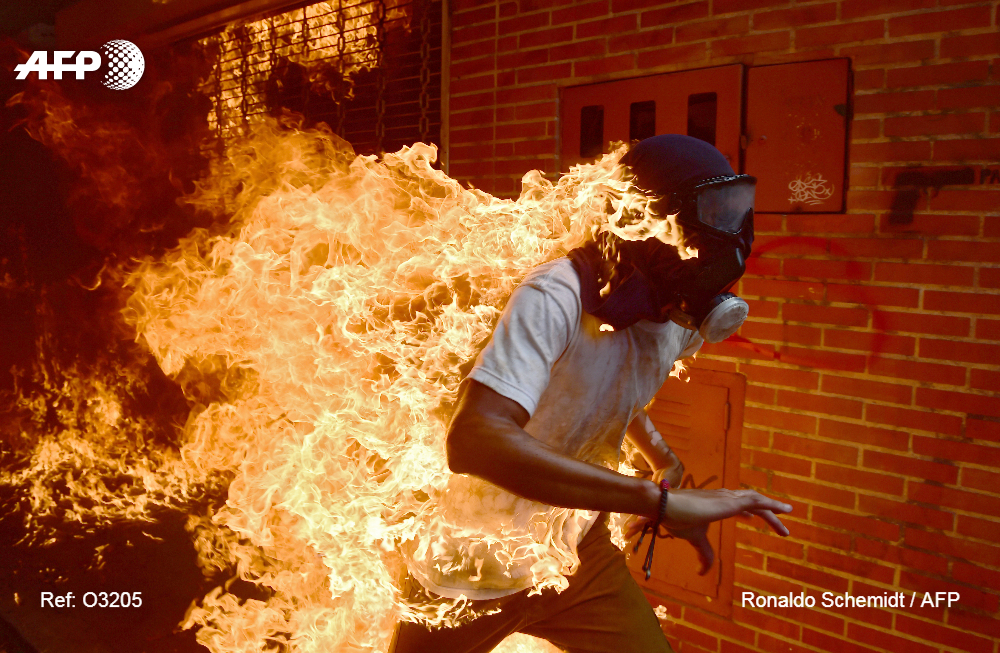Inside AFP
Searing Venezuela shot was personal for AFP photographer
It is one of those images that leaps out from the page: a young Venezuelan man engulfed in flames runs in panic through a fiery street, a gas mask obscuring his face.
In the picture, which was nominated Wednesday for the prestigious World Press Photo of the Year award, it is the little details that stand out: A graffiti gun spray-painted on a wall fires the word "peace" from its barrel.

Then there is the gas mask, which makes the young Venezuelan protester seem anonymous, a faceless symbol of a country in flames.
But for the photographer who took the shot, Ronaldo Schemidt of AFP, the protests that racked Venezuela last year were far from faceless.
Schemidt, 46, is Venezuelan himself. And though he left the country 18 years ago, his family has been caught up in the hunger, hyperinflation and shortages that sparked the protests against President Nicolas Maduro -- four months of street battles that left 125 people dead.
In an interview in Mexico City, where he is based, Schemidt spoke about the moment he shot the photo and his own experiences of Venezuela's descent into chaos.
Q: What's the story behind this photo?
"It was a chain of events that grew out of a very intense clash (between security forces and protesters in Caracas).
"I thought the day was almost over, that the protest was ending.
"But I saw (some protesters) running and followed them. When I got there, there were protesters clashing with armored vehicles. One of the armored vehicles ran over some young men. Then the protesters managed to grab a national guard motorcycle.
"That's when I saw the gas tank was on fire and moved away. At that moment, the motorcycle exploded. I was very, very close, with my back turned. I didn't see it. I just felt the explosion, the heat, and started taking pictures. I shot and shot within the ball of fire without really knowing what was happening.
"I only realized a few seconds later that it was a person on fire.
"When I saw the pictures, I felt shocked -- for the young man, for the accident, for the level of violence the conflict had escalated to."
Q: What was your reaction when you learned you were one of six finalists for the prize?
"I have conflicting emotions. Of course you feel satisfied on a professional level. But on another level, you still feel worried about what's happening (in Venezuela). I have friends there, family there.
"My family... is living all this in the flesh. They can't get the medicine they need, for example. My parents, who are older, need certain medications that can't be found.... And if one does happen to appear, it's extremely expensive, impossible to buy. They are suffering from the scarcity of food. They can't eat what they want, they eat whatever they can find."
Q: What is the situation in Venezuela like now? And what became of that young man?
"The economic, political and social situation is terrible. Violent crime is out of control. But people are tired. They feel finished, defeated, powerless. There's a general sense of dejection.
"Something we can't avoid in our work is that it's very personal. You start to identify with your subjects. This boy suffered a terrible accident because he was in the wrong place at the wrong time.
"Afterward, I learned he had recovered. A long time later, I saw him in a video online. He was recovering in a hospital.
"But in the moment, you can't stop worrying. For many days, that image of him was constantly with me."
